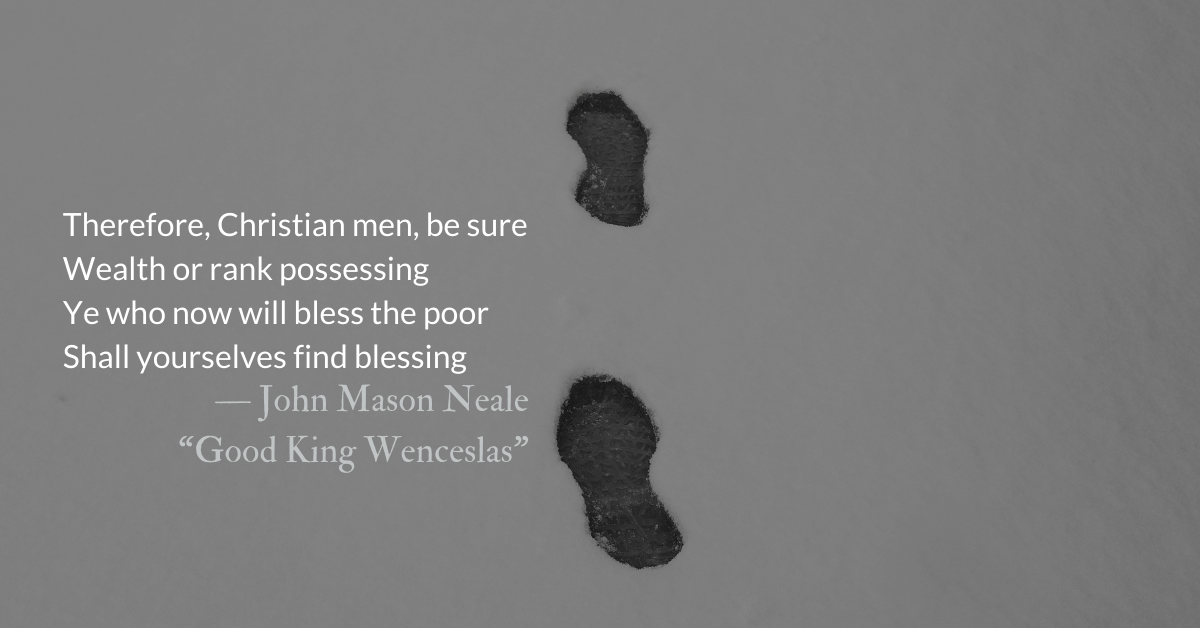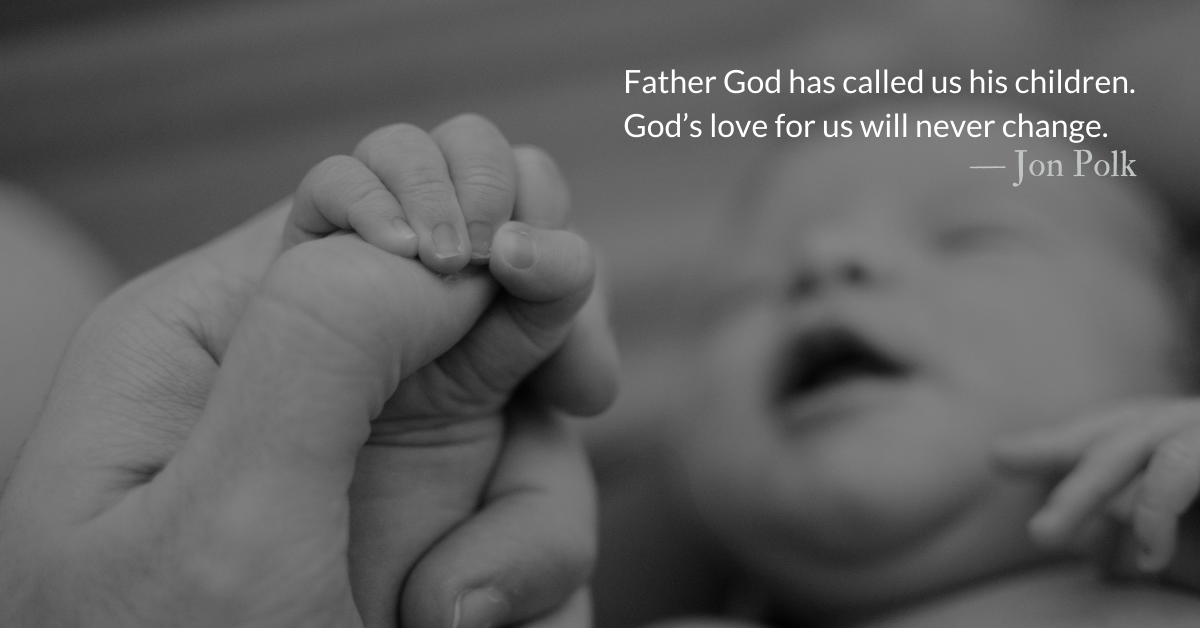Scripture Focus: 3 John 3-6
3 It gave me great joy when some believers came and testified about your faithfulness to the truth, telling how you continue to walk in it. 4 I have no greater joy than to hear that my children are walking in the truth.
5 Dear friend, you are faithful in what you are doing for the brothers and sisters, even though they are strangers to you. 6 They have told the church about your love. Please send them on their way in a manner that honors God.
Luke 6:38
Give, and it will be given to you. A good measure, pressed down, shaken together and running over, will be poured into your lap. For with the measure you use, it will be measured to you.
Reflection: Good King Wenceslas — Carols of Advent Love
By Jon Polk
In 921, the Duke of Bohemia (in modern Czech Republic) died when his son Wenceslas was only 13 years old, too young to rule. Wenceslas’ late grandfather converted to Christianity under the influence of Byzantine missionaries and his grandmother had seen to his education, so she was made regent in his stead.
At age 18, Wenceslas was made Duke of Bohemia and his reign was characterized by his Christian heritage. He became known for acts of charity and almsgiving, winning the admiration of his subjects.
Historian Cosmas of Prague wrote about Wenceslas in 1119:
His deeds I think you know better than I could tell you; rising every night from his noble bed, he went around to God’s churches and gave alms generously to widows, orphans, those in prison and afflicted by every difficulty, so much so that he was considered, not a prince, but the father of all the wretched.
Wenceslas’ legacy helped shape the medieval concept of the righteous king, whose power is based on great piety in addition to regal authority.
Written by English hymn writer John Mason Neale in 1853, the carol “Good King Wenceslas” recounts one incident of love and generosity by the good king.
Good King Wenceslas looked out
On the Feast of Stephen
When the snow lay round about
Deep and crisp and even
Brightly shone the moon that night
Though the frost was cruel
When a poor man came in sight
Gathering winter fuel
The king orders his servants to gather food, drink and firewood and summons his page to help him deliver the goods to the poor peasant.
Page and monarch forth they went
Forth they went together
Through the rude wind’s wild lament
And the bitter weather
As the weather worsens, the page insists he can go no further; the king suggests that the page simply follow boldly in his footsteps. Upon doing so, the page discovers that he is warmed by the sod where snow had melted under his master’s footprints.
The Christmas season often prompts many people to engage in acts of charity and kindness. There are toy drives, meals served in soup kitchens and generous donations made to notable causes, all our expressions of God’s love.
Unfortunately, however, our generosity usually ends on December 26th.
While the carol recounts only one incident at Christmastime, Wenceslas was remembered for a life of generosity and love for those in need.
We follow a Righteous King who lived his whole life as a servant. He invites us to simply walk boldly in his footsteps, serving others not only for a few weeks during the Christmas season, but consistently throughout the year.
Therefore, Christian men, be sure
Wealth or rank possessing
Ye who now will bless the poor
Shall yourselves find blessing
Listen: Good King Wenceslas by Downhere
Read: Lyrics from Hymnary.org
Divine Hours Prayer: The Refrain for the Morning Lessons
Blessed are they which do hunger and thirst after righteousness: for they shall be filled. — Matthew 5.6
– From The Divine Hours: Prayers for Autumn and Wintertime by Phyllis Tickle.
Today’s Readings
2 Chronicles 8 (Listen – 3:02)
3 John 1 (Listen – 1:51)
Read more about Supporting our Work
We are thankful for our donors’ gifts because they contribute to improving the spiritual discipleship of readers around the globe.
Read more about He Became a Servant — Love of Advent
Jesus is our perfect and complete picture of what God is like. He is still among us as one who serves and we are to be like him.











